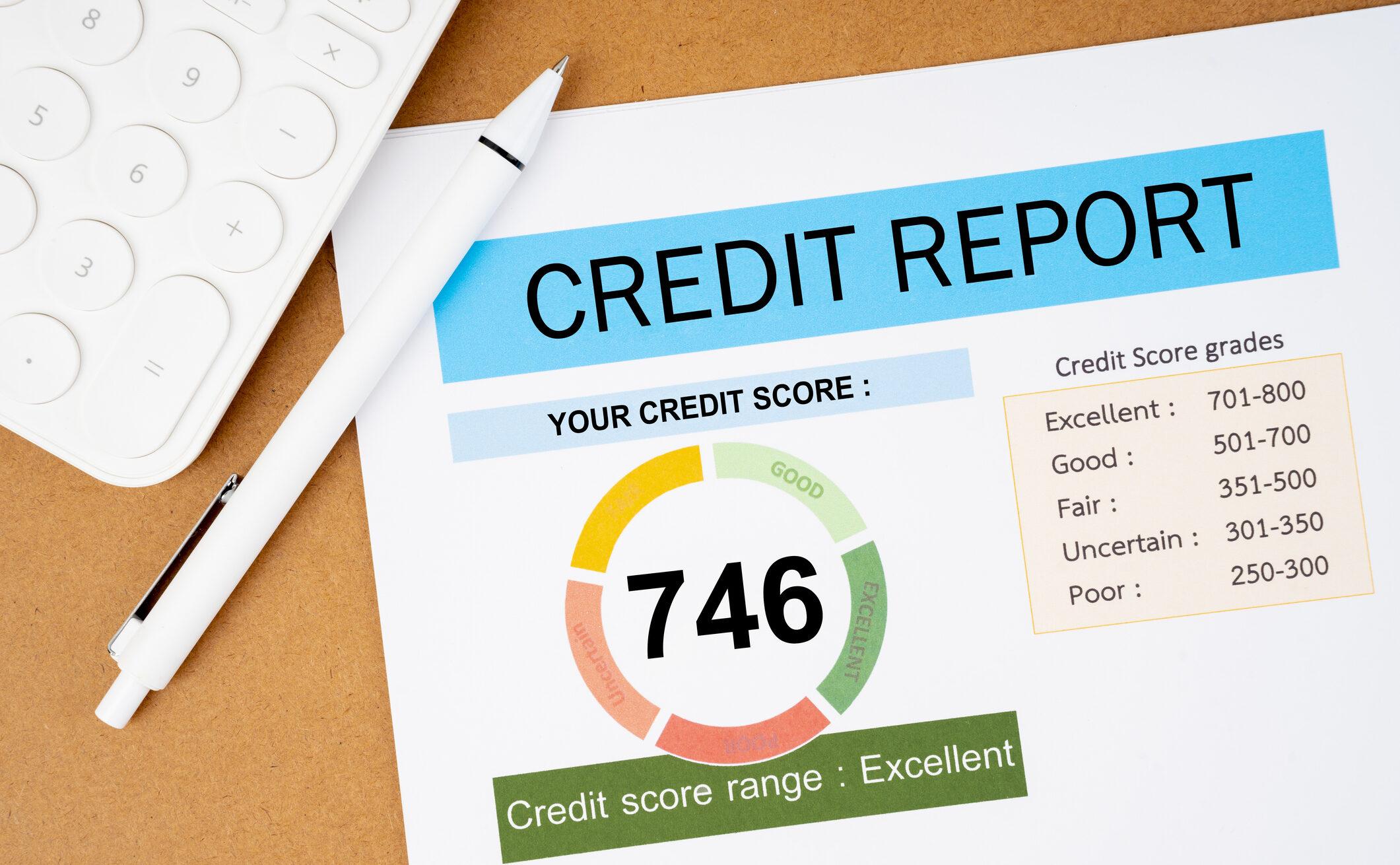
Key takeaways
-
The minimum credit score for a home equity loan generally is 620, but some providers set the threshold as high as 730.
-
You’ll also need a debt-to-income ratio of 43% or less, and at least 15% home equity.
-
Before applying for a home equity loan, consider alternatives such as a home equity line of credit, cash-out refinance, personal loan and home equity agreement.
Thinking of borrowing against your home equity? Depending on your circumstances, this can be a shrewd financial decision. But if you decide that you’d like to access that home equity through a home equity loan (HEL), are you sure you meet the minimum credit score?
Consider this: in the first quarter of 2022, 44.9% of mortgaged residential properties in the country were considered equity-rich. (Being “equity-rich” means you hold at least 50% equity in your home, or, in other words, owe no more than half of its market value.)
Here’s where things get tricky. It’s possible to be equity-rich and still have trouble converting that equity into cash. That’s often the case when you’re furloughed or unemployed, for example.
This is why you want to ensure that you have the required credit score for a home equity loan before applying for financing.
First things first: What is a home equity loan?
A HEL is a loan you borrow against the equity you’ve built up in the property. Your equity is your home’s current market value minus anything you owe on it, such as a mortgage.
You receive the loan amount as a lump sum, normally up to 80%–85% of your home equity. You then repay the amount in monthly payments plus interest. The interest rate is usually fixed, which means the payments don’t change over time.
If you don’t pay the loan back, you risk losing your property to foreclosure.
What is the minimum credit score for a home equity loan?
You typically need a credit score of at least 620 to qualify for a home equity loan.
However, credit requirements vary across providers, and some may set the threshold as high as 730.
To check where you stand, start by obtaining and reviewing your credit reports from the three biggest credit reporting agencies:
-
Equifax
-
Experian
-
TransUnion
Under federal law, you can request free copies of your reports from each at AnnualCreditReport.com once a year. It’s important to make sure the information on your reports is accurate, because the credit reporting agencies use that information to calculate credit scores.
Credits reports do not include actual credit scores. Many banks, credit unions and credit card issuers provide scores to customers at no charge. You can check the websites of each, or contact your financial institution directly to find out. You also can purchase credit scores from credit score services, or at www.myfico.com for a nominal charge.
If you need to improve your credit score:
-
Pay all bills on time, every time
-
Pay off as much of your debt as you can
-
Keep your credit utilization as low as possible
-
Limit new credit card applications
-
Refrain from closing old credit accounts
-
Pay off existing debt
What else do you need to qualify for a home equity loan?
A credit score in the mid-600s isn’t enough to make you eligible for a home equity loan. You’ll also need:
A debt-to-income ratio (DTI) of 43% or less
Your DTI measures your monthly financial obligations against your income. This includes payments for:
-
Rent or mortgage
-
Alimony or child support
-
Student, auto, credit card and other loan payments
-
Expenses such as taxes, groceries and utilities don’t factor into DTI (unless you put them on a credit card).
To calculate your DTI, add up your monthly payments and divide that number by your gross monthly income (your income before taxes and other deductions are taken out).

For instance, if you have a $1,000 mortgage payment and a $200 car payment, and make $4,000 a month before taxes, your DTI would be:
($1,000 + $200) ÷ $4,000 = 0.3 = 30%
To qualify for a HEL, you need a DTI of 43% or less after factoring in your potential new loan payment. To get the best rate, that number should generally be no more than 36%.
You can lower your DTI by paying off debt, increasing your income – or both.
At least 15% home equity
Many lenders have a minimum loan-to-value (LTV) limit of 85% for home equity loans. An LTV measures the total debt on a property against its market value.
So, if your home is worth $300,000 and you owe $250,000 on your mortgage, your LTV will be 83%.
$250,000 ÷ $300,000 = 0.83 = 83%

You could still get a loan with a higher LTV, but you’ll likely have to buy private mortgage insurance.
A home equity loan may be a good option if:
You’re looking to buy, build or improve your home
You may be able to deduct the interest on home equity loans of up to $750,000 if you use the money to buy, build or fix up a property.
You want to consolidate and pay off existing debt
A HEL can help you to consolidate and pay off higher-interest debt. Because your property serves as collateral, HELs typically have lower interest rates than unsecured loans, like personal loans or credit cards. This means you could use the funds from a HEL to pay off existing debt. That would leave you with just one loan payment – the HEL – with a lower interest rate.
You can afford the closing costs
HELs come with similar closing costs to mortgages, including origination, appraisal, loan processing and recording fees. You may also have to pay points or prepaid interest.
What are some alternatives to home equity loans?
Before applying for a HEL, you may want to consider the following alternatives:
Home equity line of credit (HELOC)
HELOCs work in much the same way as home equity loans. The difference is that instead of receiving a lump sum upfront, you get access to a line of credit. You borrow as much as you need when you need it (within your limit) and repay only that amount. This is a good option if you don’t know how much you’ll need or when you’ll need it.
However, note that HELOCs often have variable interest rates, so the monthly payments may change.
Cash-out refinance
A cash-out refinance replaces your current mortgage with a new one – one that has a higher loan amount and a lower interest rate. You receive the difference in cash. The interest rates tend to be lower than with HELs, but you’ll still have to pay closing costs.
Personal loan
Most personal loans are unsecured, which means they are not secured by a tangible asset, like a house. So, if you default, you don’t risk losing your home. They also have lower minimum amounts than HELs, making them a good option if you only need a few thousand dollars. Interest rates are usually fixed, but higher than with HELs.
Home equity agreement (HEA)
HEAs aren’t loans, so come with flexible income requirements and no:
-
Interest
-
Monthly payments
-
High credit score requirements
You receive a lump sum upfront, usually up to 80% of your home equity. In exchange, the HEA provider gets a share of the proceeds when you sell the property at the end of the term, usually in 10 years. Until then, you continue to live in your home as normal. If you don’t want to sell the property by the end of the term, you can buy the provider out.
Is your credit score too low to qualify for a home equity loan?
A low credit score makes it hard to qualify not just for home equity loans, but for other loan types as well.
If your score is less than ideal, consider an equity-based product like a home equity agreement instead. Equity can often solve financial problems that debt-based products can’t.
Explore Unlock Technologies’ home equity solutions.
The blog articles published by Unlock Technologies are available for informational purposes only and not considered legal or financial advice on any subject matter. The blogs should not be used as a substitute for legal or financial advice from a licensed attorney or financial professional. Links in our blog posts to third-party websites are provided as a convenience and are for informational purposes only; they do not constitute an endorsement of any products, services or opinions of the corporation, organization or individual. Unlock Technologies bears no responsibility for the accuracy, legality, or content of external sites or that of subsequent links.



